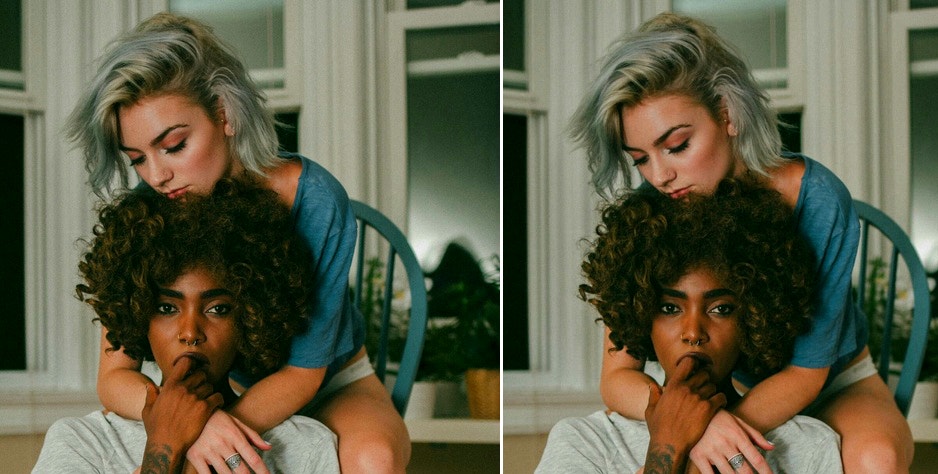Being A Good Friend Doesn't Mean Supporting All Their Decisions
You owe your friends compassionate, considerate criticism.
 weheartit
weheartit A while ago, I had a friend who was getting a nose job after a string of other unnecessary plastic surgeries, and because I was worried about her mental health and this obsession with superficial self-improvement, I calmly stated I was not at all supportive of her decision.
In response, this friend spent an evening at a cocktail party of mutual acquaintances running around asking the other guests, “I’m getting a nose job soon! Do you support me?!” When they confusedly answered, “Uh, yeah, dude... You do you...” she made sure to let each of them know that she appreciated their support and that I was a horrible friend because I didn’t, to which many reacted with expected disgust at my stance. It was a super-healthy interaction all around.
That said, I still refuse to support friends in making what I perceive to be unhealthy decisions.
This doesn’t mean I don’t love them, and it doesn’t mean I won’t do what I can to help them if they need it, but being a good friend means not enabling a friend to wreck her life.
Now, I don’t attempt to stand in anyone’s way or interfere with my friends’ autonomy because I respect that my friends are adults and deserve the right to make their own decisions. However, I draw a hard line in contributing to others’ self-destruction just because it’s expected of friends to go along with each others’ every whim politely. That’s ridiculous.
I realized this in my early 20s when I went to visit a friend who was living with a guy who could not have been more of a mess. His very presence seemed to deflate her spirit completely, and I was so concerned for her. However, instead of taking her aside and voicing my concern, I just let it go because I didn’t want to seem like a nag or a bitch.
Later, after she’d broken up with him, she told me, “EVERYONE was wondering what the hell I was doing with him but nobody said anything to me. I wish someone had. It made me wonder who my real friends were.” That always stuck with me.
Since then, it is always the friends who respectfully speak up when they see a problem with my behaviors or life choices that I treasure the most. When I was still a new mom, living in a new town where I didn’t know anyone, one of my oldest friends called me and said, “Listen. I love you and this is not a superficial criticism, but every single time I see a picture of you posted on social media, you are wearing the same outfit. I was a new mom once, too, and I’m worried. Are you getting out of the house? Are you taking care of yourself?”
She hit the nail on the head; I was barely leaving my house and had been steeping in a serious depression for months, something she was able to sense even though we were 100 miles apart. It was the most considerate, compassionate criticism I’d ever received.
I vowed to her that I’d start making sure I’d at least bathe and change clothes every day, just for her. Soon, I was going out for daily walks and smiling more. It never would’ve happened if she hadn’t stopped to gently call me out on my sh*t.
This is what makes friends different than just acquaintances and it’s a responsibility I don’t take lightly. Refusing to sit by while your friend hurts herself through destructive choices or habits is saying, “You’re my friend and I’ll fight for you even if you won’t.”
Simply stating, “I don’t support this, but I love you anyway” is all anyone can effectively do in order to influence friends’ decisions, though. I used to want to try to “save” my favorite people from their self-destruction but after a while, I realized that by attempting to bully people into changing their minds, I was just alienating myself and making it harder for them to ask me for help later.
Additionally, I can’t sit here and argue that every situation deserves the same type of response; I have different personal boundaries with my friend who is opting to stay in an abusive relationship than the one who is nurturing a speed addiction, for example.
All I know for sure is that the best way to show my love for someone is to be completely honest when they ask for my advice or opinion, whether or not I am showing support for their choices. That, to me, is being a good friend.

